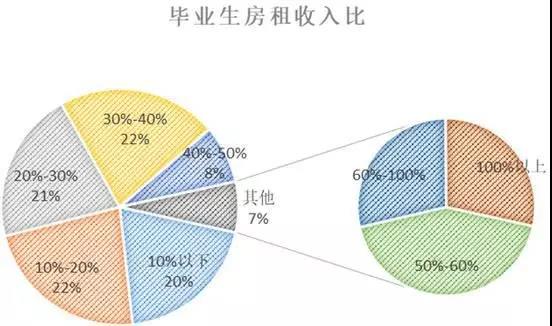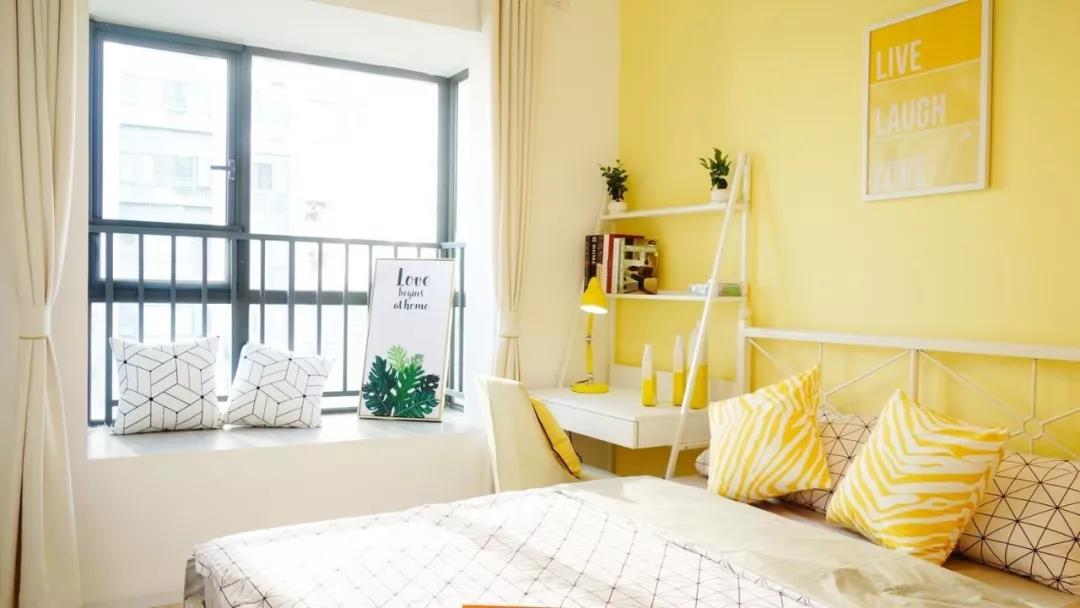More than 50 percent of fresh university graduates in 2019 lived and worked in big cities, and nearly 40 percent of the graduates spent over 30 percent of their income on renting apartments, according to a recent big data report.
The major factor when graduates choose future residences is their income, according to the report released by the property information website zhuge.com and the newspaper China Times.
Although nearly half of the graduates said that they expected to earn more than 6,000 yuan ($873) per month, in reality, more than half of all graduates in 2019 earn less than 5,000 yuan per month.

Due to the lower average salaries, 70 percent would like to spend less than 2,000 yuan. Only 6 percent of graduates expected to spend more than 5,000 yuan, and most such graduates live and work in big cities.
According to the report, 40 percent of the graduates said that they need financial support from parents for rent, which takes up 20 to 50 percent of their monthly spending.
In terms of housing choices, more than 60 percent of fresh graduates prefer to rent an entire apartment. However, statistics also showed that many graduates in big cities have chosen to share the high rent with other tenants.

Things you need to know before renting a house
-
Research the area
Think about the area before you move in. Is it near a hospital? If so, can you hear ambulances all the time? Is it near a noisy pub? Check all the surroundings before you sign.
It is up to the tenant to do their own research and inspect the dwelling and surrounding area before they sign the agreement and move in.
-
Discuss pets early
Bring up pets early in negotiations with your prospective landlord.
If the landlord does not want pets at the address, then the tenant should look elsewhere. Having a pet in breach of a tenancy agreement that prohibits pets will generally lead to a possession action and eviction further down the line.
-
Check out the white goods
Inspect the white goods (fridge, freezer, washing machine, cooker, microwave, dishwasher, etc), and report any defects as soon as you move in.
If white goods are included in the inventory on the agreement, then the tenant should visually inspect them and get the landlord to confirm in writing that they all work satisfactorily.
-
Don’t forget to check the water pressure too
When you first inspect a property, run the taps and the shower.
If there’s a problem with the water pressure, you can negotiate with the landlord before signing the agreement.
If the tenant does not comprehensively inspect the property before entering into the agreement, they may not be able to resolve these problems later, although in some cases inadequate water pressure may fall within the landlord’s legal obligations.
-
Conduct a thorough inventory
When going through the property’s inventory, make sure you point out any defects and take a note of the state of the items (by taking photos of broken bannisters, for example).
Give a copy of the amended inventory to the landlord, keeping a copy for yourself.
If your landlord has not prepared an inventory, you can prepare your own, and then ask your landlord to sign it. If not, make sure you have taken photographs, and ask an independent witness to sign the document.
-
Challenge any terms and conditions you’re not happy with
Sometimes you can challenge terms and conditions you’re not happy with, but this must be done before you sign the tenancy agreement.
This can also apply to the landlord’s repair obligations (fixing a broken cupboard door, for example). Many repair obligations are legal requirements, but the landlord might agree to additional repairs under the tenancy agreement.
If the landlord will not change the disputed term or condition, the tenant should not enter into the tenancy.
-
Find out where your deposit will be held
-
And when it comes to your money, know your rights
-
Ask for everything in writing
-
Read the tenancy agreement thoroughly
Is there anything you would like to share with us in renting a flat? Please leave your comments here.